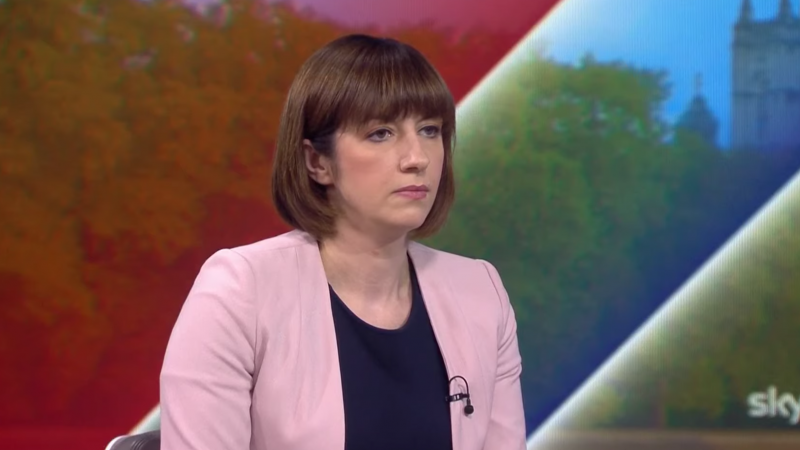
A Labour motion calling for the creation of a Commons select committee to consider ending tax breaks for private schools has been rejected by MPs by 303 votes to 197.
Labour’s motion, debated in parliament this afternoon, demanded that a “fair taxation of schools and education standards committee” be created “to consider reforming the tax status of private schools” in order to raise funds to improve educational standards in the state school sector.
Addressing the Commons during the debate, Bridget Phillipson said: “Protecting private schools isn’t about aspiration for all of our children, it’s about ensuring exclusive opportunities remain in the hands of a privileged few.”
The Shadow Education Secretary said: “Labour believes that excellence is for everyone. Excellence for every child in every school in every corner of our country. And I’m asking honourable members to support that ambition through establishing a new select committee.”
“The government has a choice. They can hide behind their vested interests or they can finally stand up for excellence for every child,” Phillipson said.
Responding on behalf of the government, Gillian Keegan described the motion as the “politics of envy”, arguing: “It’s pulling the rug out from under good independent schools in a weakly-veiled, politically motivated, economically incoherent policy”.
The Education Secretary said: “Our focus should rightly remain on improving standards at all schools, so we will continue to ensure that all state-funded schools have the funding that they need to make sure that every child receives the best education and opportunities possible.”
Phillipson argued that the Tories have created a “growing teacher recruitment and retention crisis” that has left teachers “overworked, overstretched and undervalued”, declaring: “Once again, it will be the task of the next Labour government to repair our school system and equip it for the future.”
She told MPs: “Private school fees have far outstripped wage rises over the last twenty years. Boarding school now average a mammoth £37,000 a year. That’s more than the average worker earns in a year, beyond the reach of all but the very wealthiest in our society.”
Phillipson said: “Labour will put our children, their futures and the future of our country first by asking those with the broadest shoulders to contribute their fair share by requiring private schools to pay business rates as state schools already do and to pay VAT as our colleges already do.”
Labour would use the funds raised by removing private schools’ tax exemptions to recruit 6,500 more teachers, as well as to offer additional teacher training and careers advice and work experience for all pupils.
“This is what aspiration for our children looks like, creating opportunities, driving high standards, delivering excellence for all. And this what parents want from government too. Not parroting lines from the independent schools lobby but standing up for children and their life chances,” Phillipson said.
A report – published by the Private Education Policy Forum in July last year – found that private schools with charitable status are depriving local councils of £144m per year through tax relief.
The research analysed data from 267 councils for the financial year 2019/20 to calculate the shortfall in councils’ revenue. It revealed that the average loss per council across England and Wales was £415,000.
In London, where there is a high concentration of private schools, a total of £28.1m worth of tax was not paid – averaging at £879,000 per local authority.
Below is the full text of Labour’s motion on a fair taxation of schools and education standards committee.
Keir Starmer
Angela Rayner
Bridget Phillipson
Stephen Morgan
Thangam Debbonaire
Sir Alan Campbell
That the following standing order shall have effect until 31 December 2023: fair taxation of schools and education standards committee
(1) There shall be a select committee, to be called the fair taxation of schools and education standards committee, to consider reforming the tax status of private schools in order to raise funding for measures to increase educational standards across the state sector, including the recruitment of new teachers, additional teacher training, and careers advice and work experience for all pupils.
(2) It shall be an instruction to the committee that it shall make a first report to the House no later than 20 July 2023.
(3) The committee shall consist of eleven members of whom ten shall be nominated by the committee of selection in the same manner as those select committees appointed in accordance with standing order No 121.
(4) The chair of the committee shall be a backbench member of a party represented in His Majesty’s government and shall be elected by the House under arrangements approved by the Speaker.
(5) Unless the House otherwise orders, each member nominated to the committee shall continue to be a member of it until the expiration of this order.
(6) The committee shall have power—
(a) to send for persons, papers and records, to sit notwithstanding any adjournment of the House, to adjourn from place to place, and to report from time to time; and
(b) to appoint specialist advisers to supply information which is not readily available or to elucidate matters of complexity within the committee’s order of reference.
(7) The committee shall have power to appoint a sub-committee, which shall have power to send for persons, papers and records, to sit notwithstanding any adjournment of the House, to adjourn from place to place, and to report to the committee from time to time.
(8) The committee shall have power to report from time to time the evidence taken before the sub-committee.




More from LabourList
‘What Batley and Spen taught me about standing up to divisive politics’
‘Security in the 21st century means more than just defence’
‘Better the devil you know’: what Gorton and Denton voters say about by-election